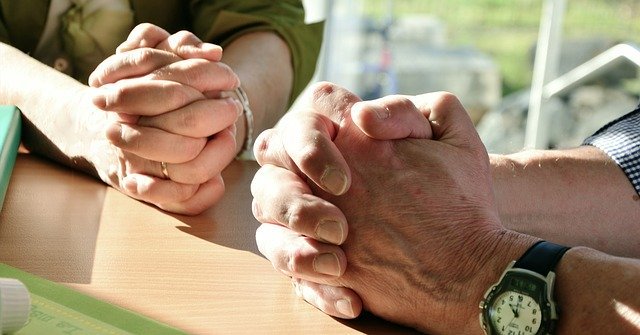As we hunker down in our homes for self-protection, from concern for the more vulnerable, or perhaps simply bowing to social pressures or legal restrictions, many of us feel a need to do something. Yet, we don’t know what we can do to make a difference. We know where the novel coronavirus originated and we are slowly getting a handle on how it is transmitted and who is most affected. But we are still in the dark as to when it will end. Am I alone in wondering if there might also be a why? Could this pandemic be a Divine wake-up call? In many circles, talk of God is considered inappropriate, even offensive, except in times of crisis. If this virus and the resulting economic fallout is not a crisis, what is?
On March 18, 2020 President Trump declared himself a wartime president. On March 30, 1863, another U.S. president, Abraham Lincoln was in the midst of a different kind of war—one that pitted brother against brother. In response to a Senate resolution, he declared a National Day of Prayer and Fasting. That resolution read, in part, “We have forgotten the gracious hand which preserved us in peace, and multiplied and enriched and strengthened us; and we have vainly imagined, in the deceitfulness of our hearts, that all these blessings were produced by some superior wisdom and virtue of our own. Intoxicated with unbroken success, we have become too self-sufficient to feel the necessity of redeeming and preserving grace, too proud to pray to the God that made us!”
The Judeo-Christian traditions have long practiced prayer and fasting as a means of petitioning for God’s intervention. Ezra (Ezra 8:21-23) prayed and fasted for humility, deliverance and protection. Jehoshaphat (2 Chronicles 20:3) for courage and guidance. The Ninevites (Jonah 3:5) as a demonstration of repentance. Israel (Judges 20:26) for victory. Jesus prayed and fasted for strength to persevere through testing (Matthew 4:2 and Luke 4:2) and told his followers that when they fasted (Matthew 6:16) it should be done with pure intentions, not for public acclaim. Finally, the apostle Paul and Barnabas fasted before commissioning others for ministry service (Acts 14:23).
Fasting is a biblical way to truly humble ourselves in the sight of God. It is a demonstration of our sincerity and an acknowledgment of God’s sovereignty. And we are not alone. Other religions and philosophies including: Buddhism, Islam, Taoism, Jainism, and Hinduism also practice fasting. Please join me on Easter Sunday, April 12, 2020, in praying and fasting for victory and deliverance from this pandemic, wisdom for the world’s leaders, protection for medical personnel and first responders and finally that we will all persevere through this health and economic crisis.
Caution: If fasting is medically ill-advised for you, don’t fast, but please consider praying and forwarding this to others.
(Note: If you want to read President Lincoln’s entire proclamation, you can find it at: http://www.abrahamlincolnonline.org/lincoln/speeches/fast.htm)

Recent Comments